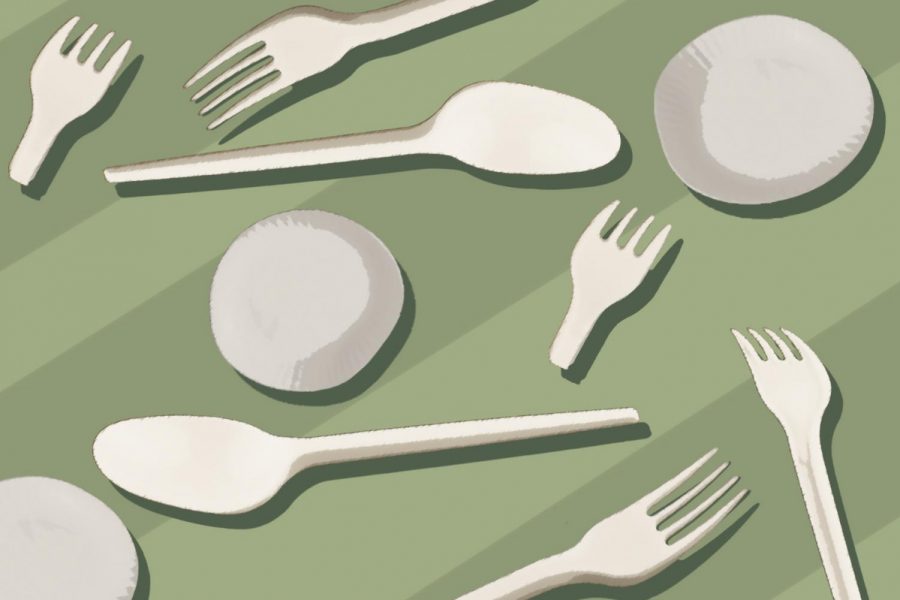UHD must stop single-use dishes due to environmental impact
December 5, 2021
After several semesters of virtual learning, we are finally transitioning back to a normal campus. University Housing and Dining has made several changes, such as opening Littlefield Patio Cafe, finally expanding their hours and planning to open a couple of other cafes, but they still have a long way to go.
The dining halls are still using paper plates, plastic cups and plastic silverware, even though they have a negative environmental impact. Reusable plates, cups and utensils are available occasionally, but not always. The dining halls have shown they are capable of using reusable options, so why can’t they be used everyday? UHD needs to prioritize environmental sustainability and provide reusable dishes to students regularly.
The new single-use dishes are compostable, but no dining halls have compost bins, aside from Jester City Limits. While there are some compost bins around campus outdoors, they’re insufficient. Public relations sophomore Anika Grendell explained the issue with justifying the use of single-use dishes because they can be composted.
“I don’t think (they’re compostable) with how they’re running it in the dining halls right now,” Grendell said. “If you’re out and about on campus, sometimes you’ll see compostable bins. There’s a few over by Littlefield Patio Cafe, but because only certain products are compostable, and food is compostable, the way the trash cans are working in the dining hall, they wouldn’t be able to compost that because there are some non-compostable items.”
There are compost and recycling bins in JCL, which makes it possible to separate compostable products from non-compostable products, but at Kinsolving Dining and J2 Dining, there are only regular trash cans, so everything is mixed. When all of the trash is mixed, anything that was compostable no longer is, because it has been contaminated by other products.
Mynor Rivera, director of dining operations, said they have a plan to add compostable bins in all of the dining halls in the spring semester.
However, even if they added these compost bins, nothing is actually being composted since UT’s contract with their former composting company expired in January 2020. Without a contract, waste placed in these new compost bins will just go to the landfill.
Rivera explained the reason for the single-use dishes is a shortage of reusable dishes and a staff to clean them.
“The problem (at Kinsolving Dining is) the staffing, and (the) dishwasher machine was broken for almost three days,” Rivera said. “(In J2) our plates and silverware (aren’t coming in) because everything is delayed for now.”
In my past columns about UHD, a shortage of staffing has been the University’s explanation for many issues. While they can’t force people to work for them, they need to either find people to hire or come up with a supplemental solution that doesn’t affect the students and isn’t wasteful.
Due to their expired contract, nothing is being composted, causing everything to go to waste. There is no environmental benefit to UHD continuing to use these compostable and disposable products anymore, so the department must stop using them.
Harrison is a journalism freshman from Dallas, Texas.



